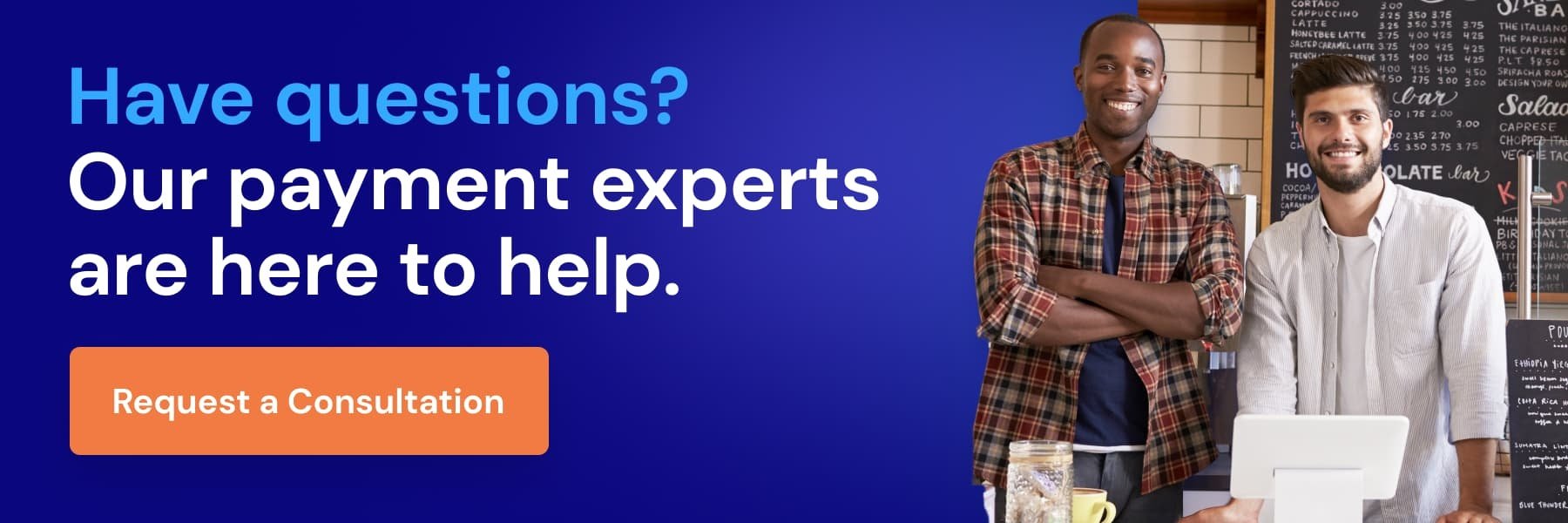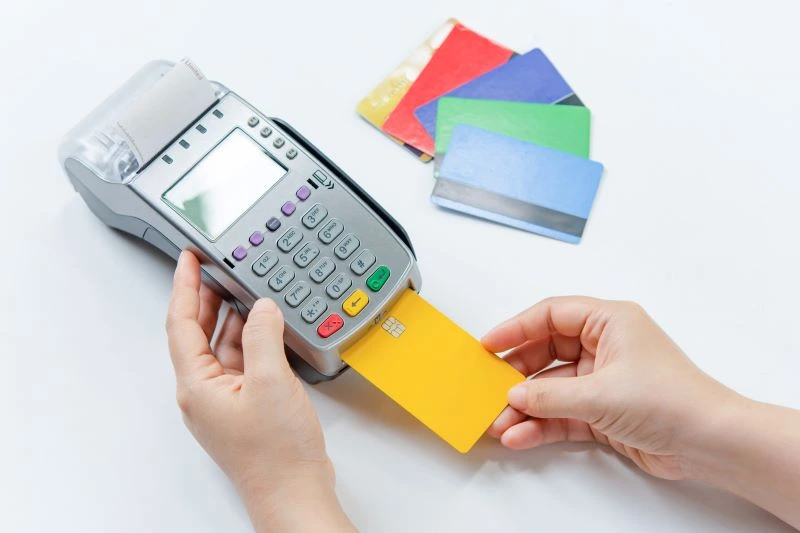With the total transaction value of digital payments expected to grow at a compound annual growth rate [CAGR] of 10.73% from 2024 to 2028, it's becoming essential for businesses to prioritize online payments. A payment gateway is the most effective tool for accepting payments if your business sells products or services online. A payment gateway's responsibility is to facilitate secure communication between customers, merchants, and payment processors—it's the glue that holds together the digital payment process.
This article explores the world of payment gateways, answering the question 'What is a payment gateway?' and detailing their role in payment processing, the benefits they offer to your business, the various types available, and other information.
What is a Payment Gateway?
A payment gateway is software designed to facilitate online transactions by securely communicating payment information between customers, merchants, and other parties involved in the payment process. It offers essential features like encryption, fraud detection, and authorization, making it crucial for accepting card-not-present transactions over the Internet. Some gateways redirect customers to a separate payment portal for checkout, while others are fully integrated with the business's website.
How Payment Gateways Work in Processing
Let's explore a step-by-step guide on how payment gateways work in payment processing:
- Step 1: A customer starts by checking out on a website while using a credit card as their payment option.
- Step 2: The customer inputs their credit card details into a payment gateway. This usually includes the credit card number, card expiry date, CVV code, billing address, and customer name.
- Step 3: Next, the payment gateway performs a series of fraud checks. This may include checking CVV codes, geolocation checks, velocity checks, or other machine-learning algorithms.
- Step 4: If there's no reason to suspect fraud, the payment gateway encrypts the payment information provided by the customer and transmits it to the payment processor.
- Step 5: Once the payment processor receives the encrypted payment data, it communicates with the customer's issuing bank to determine if there are sufficient funds in the account for the purchase.
- Step 6: The issuing bank determines if there are sufficient funds and sends an authorization or decline notification to the payment processor.
- Step 7: The payment processor relays the information back to the payment gateway, and the customer receives notification of an approved or declined transaction.
While this is a multi-step process, it all occurs almost instantly, ensuring a smooth payment experience for customers.
Payment Gateways vs. Payment Processors
Payment gateways and payment processors play distinct roles in the world of payment processing. A payment gateway is a customer-facing technology that securely captures and encrypts payment information during checkout. It connects customers, merchant websites, and payment processors.
In contrast, a payment processor is a back-end service that handles the authorization, processing, and settlement of transactions between the customer's bank and the merchant's bank. Essentially, payment gateways manage payment data and security while payment processors execute transactions. Although some payment processors offer payment gateways as an additional service, they remain two separate entities.
How a Payment Gateway Can Benefit Your Business
There are a lot of advantages to using a payment gateway — let's explore the top three:
- Accept Payments Online: First and foremost, payment gateways enable businesses of all sizes to accept payments online. They make complex digital payments accessible to everyone.
- Detect Fraudulent Payments: Payment gateways have fraud detection tools to detect fraudulent transactions, ensuring businesses reduce exposure to chargebacks and financial losses.
- Create a Seamless Shopping Experience for Your Customers: Payment gateways perform authorization and fraud checks in seconds, ensuring customers have an easy checkout process. Likewise, most payment gateways have easy-to-use customer interfaces, which can reduce the chances of abandoned carts..
Types of Payment Gateway Services
Let's explore each type in more detail:
Redirect Payments
With redirect payment gateways, the customer is redirected to an off-site portal to complete payment during the checkout process. Redirect payment gateways don't require integration or self-hosting, making them a simple, affordable option for merchants. PayPal is an example of a payment gateway provider that offers a redirect option.
Self-Hosted
Self-hosted payment gateways are the most customizable option. With a self-hosted gateway, the merchant hosts it on their own servers. This means the merchant is responsible for data security, customization, transaction processes, and more. This is usually the most expensive option.
Hosted
This term is often used interchangeably with a redirect payment gateway. Both involve redirecting the customer to the payment gateway provider's site for payment processing.
API - Hosted
API-hosted payment gateways integrate with a business's website, ensuring customers benefit from an on-site shopping experience without all the requirements of a self-hosted payment gateway. In many cases, API-hosted payment gateways can be customized to include the merchant's branding, color schemes, and more.
Security of Payment Gateways
As payment gateways don't require a physical card to process payments, they're more prone to fraud than standard in-person transactions. To protect merchants from scammers, it's essential for a payment gateway to incorporate a range of payment security features.
Compliant with PCI DSS Standards
PCI DSS (Payment Card Industry Data Security Standard) is a set of security standards designed to ensure that all companies securely process, store, or transmit credit card information. It's crucial that your payment gateway complies with these standards to ensure cardholder data remains secure. A payment gateway provider that does not adhere to PCI DSS standards may not be the best choice for a partnership.
Encryption
Encryption is a critical security measure for protecting customer credit card details from hackers. It converts sensitive information into a coded format that can only be accessed by authorized parties with the correct decryption key. This process ensures that even if data is intercepted during transmission, it remains unreadable to unauthorized individuals. For effective security, your payment gateway must encrypt all transmitted data, safeguard customer credit card information, and ensure a secure payment process.
Secure Electronic Transaction (SET) Protocol
The Secure Electronic Transaction (SET) protocol ensures that sensitive credit card details are protected during the payment process. It uses encryption and hashing to prevent access to sensitive information and reduce exposure to fraudsters.
Tokenization
Tokenization replaces a customer's original payment data with a unique token, protecting the core payment details from hackers. By using tokenization, payment gateways can complete customer payments without accessing a customer's original card number, expiry code, or CVV.
Secure Socket Layer (SSL) Technology
Secure Socket Layer (SSL) technology helps protect communication between web browsers and servers. It encrypts connections between servers and browsers to ensure fraudsters can't access sensitive information.
How Much Does a Payment Gateway Cost?
The cost of a payment gateway varies depending on the provider and the services you're seeking. If you're a large business requiring a self-hosted, custom payment gateway, the costs can be substantial. This is due to the development price, security features, hosting, maintenance, etc.
However, for most businesses using redirect or API-hosted gateways, the costs are much more affordable. Payment gateway providers often charge a small monthly fee and a per-transaction commission. For example, you may pay $10 monthly and $0.10 per transaction. This does not include the cost of payment processing.
What to Look for in Selecting a Secure Payment Gateway
When selecting a secure payment gateway, it's essential to consider its features before integrating it with your payment stack. Let's explore the must-have payment gateway features for modern merchants:
Integration Capabilities and APIs
If you want to provide a hassle-free online shopping experience to your customers, it's essential to partner with a payment gateway provider with APIs and integration capabilities. Integrating your payment gateway with your website makes it easier for customers to complete purchases and makes your online store appear more professional.
Additionally, APIs and integration make it easier to tailor payment gateways to fit your specific business needs. This can include incorporating your brand's look and feel, optimizing the user interface for better customer engagement, and adding advanced features such as recurring billing, subscription management, and personalized payment options.
Fraud Detection Tools
Research suggests that online payment fraud will lead to cumulative losses of more than $340 billion between 2023 and 2027, so it's crucial to have a payment gateway with strong fraud prevention. To stay ahead of scammers, prioritize fraud detection tools such as CVV code verification, geolocation verification, machine learning fraud detection, two-factor authentication, and address verification.
Virtual Terminals
Virtual terminals are essentially payment gateways used by businesses to process payments remotely. With a virtual terminal, a staff member can log in via a computer browser and input a customer's credit card details to complete transactions. The physical card does not need to be present, making it ideal for over-the-phone and email payments. This feature is particularly useful for accepting payments from customers who can't visit a physical location. Many payment gateway providers offer virtual terminals to their merchants.
Currency Conversion
When overseas customers purchase products or services on your website, they want to know how much it will cost in their local currency. Payment gateways with currency conversion features can provide conversion figures in real-time, ensuring overseas customers know exactly how much they're paying in their local currency when shopping on your website.
Multiple Payment Type Support
Your payment gateway should accept all major credit card brands and offer other convenient payment options, such as bank transfers (ACH transfers). Offering payment flexibility can help attract customers with a preferred payment method and broaden your customer base.
Multiple MID Capabilities
Merchant identification numbers (MIDs) are unique identifiers assigned to merchants by their merchant account providers. If your business has multiple MIDs for different service lines (for example, one MID for online products and another MID for online services), you must have a payment gateway with multiple MID capabilities. This makes facilitating better transaction tracking, risk management, and compliance easier.
Card Updaters
Card updaters automatically update a customer's credit card details when a card is lost, stolen, or expires. Not only do card updaters reduce the hassle of updating card details for your customers, but they also protect your business's revenue. This tool is especially critical for subscription services. If you don't have a card updater linked to your subscription payments, you'll automatically lose revenue if a customer's card is reported lost or stolen.
Level II & III Processing Support
Level I payment processing is the standard for customer-to-business (C2B) transactions. However, Level II and Level III payment processing are available for businesses accepting business-to-business (B2B) or government-to-business (G2B) transactions. This type of payment processing requires more detailed transaction information but offers much lower processing rates than standard consumer transactions. If you accept payments from other businesses or the government, ensure your payment gateway is compatible with Level II and Level III processing.
The Bottom Line
If you want to maximize your business's capabilities, it's important to open up as many avenues for payments as possible.
However, choosing a reliable payment gateway provider is essential to ensure a smooth payment experience for you and your customers. With so many good payment gateways on the market, there's no need to settle for subpar products. So, what are you waiting for? Contact a reliable payment processor to set up your payment infrastructure!
Frequently Asked Payment Gateway Questions
A payment gateway and a virtual terminal are similar software products. However, customers use a payment gateway to purchase products online, while staff use a virtual terminal to process card-not-present payments (such as payments over the phone or via email). Both payment gateways and virtual terminals create a secure environment for processing card-not-present payments digitally.
The process for setting up your payment gateway will vary depending on the provider. Fortunately, most payment gateway providers offer onboarding services to help you set up your gateway and integrate it with your existing payment stack.
The time it takes to set up a payment gateway can vary depending on the provider and the complexity of your business needs. Generally, it can take anywhere from a few hours to a few days. Many modern payment gateways are built to integrate with major web builders, such as WordPress, Shopify, etc. However, if you want a fully customized payment gateway, developers may take longer to develop and integrate it.
Yes, there's no reason you can't have multiple payment gateways, however it may be redundant.
Stripe is a payment processor that also provides payment gateway solutions to its clients. One of Stripe's benefits is that it is an all-in-one payment solution, meaning you won't need to connect your payment processing services to a separate payment gateway provider. Stripe's APIs make its payment gateways highly customizable.
Payment gateways are the backbone of a secure eCommerce shopping experience. An eCommerce business's payment gateway encrypts and transmits customer payment data to payment processors to authorize transactions. Likewise, payment gateways perform a range of security checks to prevent fraudsters from using stolen credit card details. All in all, payment gateways provide a secure, convenient tool to facilitate online transactions for eCommerce businesses.
A payment gateway integration is the process of connecting a payment gateway to a business's website or online store. If you want your customers to purchase goods and services on your website, you must have an integrated payment gateway to facilitate the transaction. While custom payment gateways may require extensive coding to integrate with a website, there are now out-of-the-box payment gateways that offer seamless integration with most websites and eCommerce platforms.






